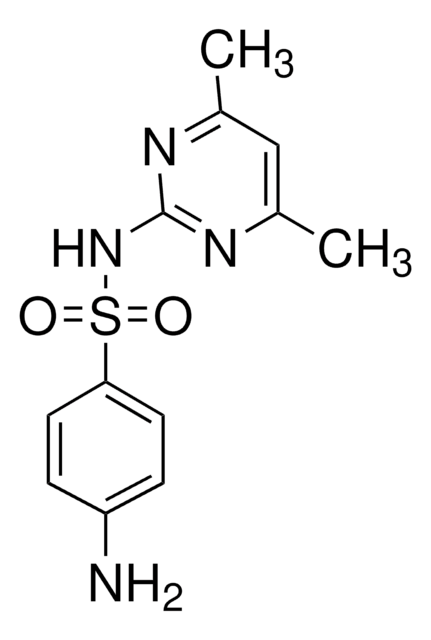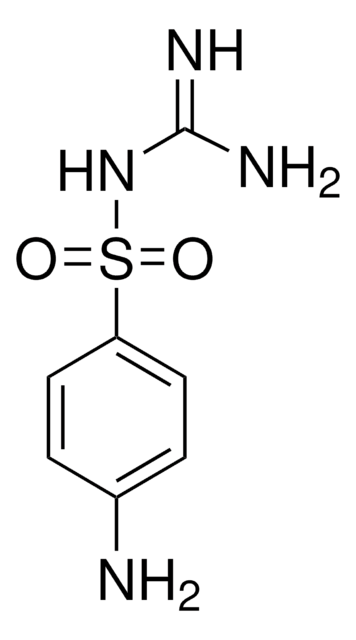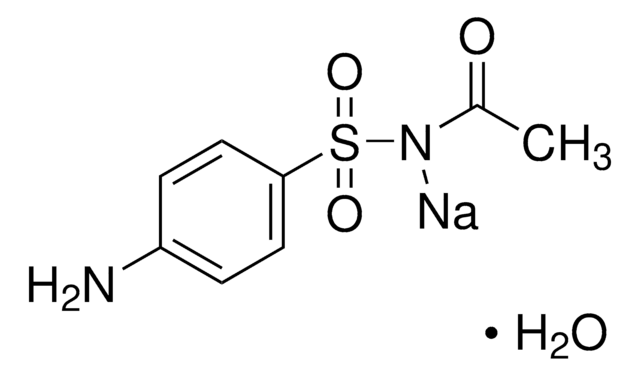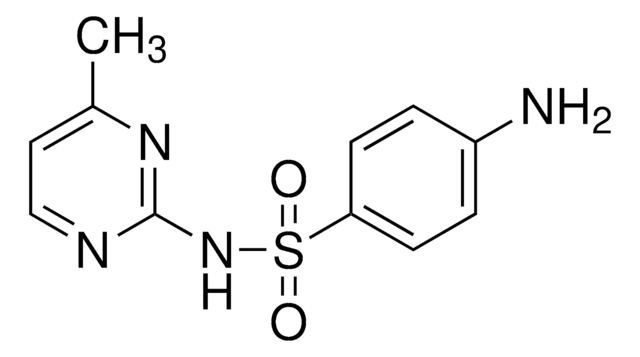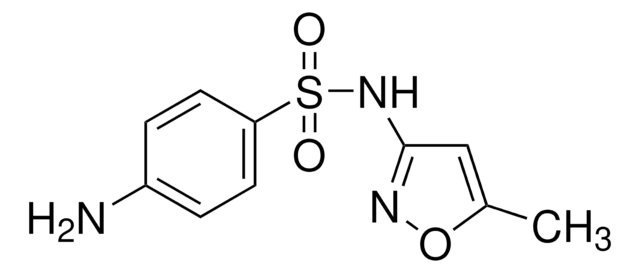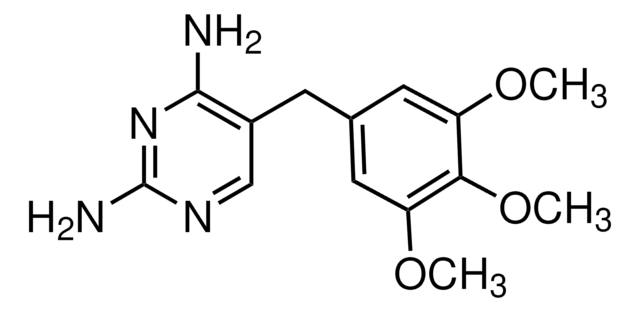PHR1184
Sulfanilamide
Pharmaceutical Secondary Standard; Certified Reference Material
Synonym(s):
sulphanilamide
Sign Into View Organizational & Contract Pricing
All Photos(1)
About This Item
Recommended Products
grade
certified reference material
pharmaceutical secondary standard
Quality Level
Agency
traceable to Ph. Eur. S2151000
traceable to USP 1632004
API family
sulfanilamide
CofA
current certificate can be downloaded
application(s)
pharmaceutical (small molecule)
format
neat
storage temp.
2-30°C
General description
Certified pharmaceutical secondary standards for application in quality control provide pharma laboratories and manufacturers with a convenient and cost-effective alternative to in-house working standards.
Certified pharmaceutical secondary standards for application in quality control provide pharma laboratories and manufacturers with a convenient and cost-effective alternative to pharmacopeia primary standards.
Sulfanilamide is an antibacterial drug.
Application
It was used in a study to demonstrate photodecomposition in aqueous solution of cutaneous photosensitizing agents with the help of spin traps 5, 5-dimethyl-1-pyrroline-1-oxide.
Sulfanilamide may be used as a pharmaceutical reference standard for the determination of the analyte in wastewater samples and biological fluids as well as pharmaceutical formulations by liquid chromatography-tandem mass spectrometry and spectrophotometry/chromatography, respectively.
These Secondary Standards are qualified as Certified Reference Materials. These are suitable for use in several analytical applications including but not limited to pharma release testing, pharma method development for qualitative and quantitative analyses, food and beverage quality control testing, and other calibration requirements.
Analysis Note
These secondary standards offer multi-traceability to the USP, EP (PhEur) and BP primary standards, where they are available.
Other Notes
This Certified Reference Material (CRM) is produced and certified in accordance with ISO 17034 and ISO/IEC 17025. All information regarding the use of this CRM can be found on the certificate of analysis.
Footnote
To see an example of a Certificate of Analysis for this material enter LRAA9003 in the slot below. This is an example certificate only and may not be the lot that you receive.
related product
Product No.
Description
Pricing
Storage Class Code
11 - Combustible Solids
WGK
WGK 1
Flash Point(F)
Not applicable
Flash Point(C)
Not applicable
Choose from one of the most recent versions:
Certificates of Analysis (COA)
Lot/Batch Number
Don't see the Right Version?
If you require a particular version, you can look up a specific certificate by the Lot or Batch number.
Already Own This Product?
Find documentation for the products that you have recently purchased in the Document Library.
Customers Also Viewed
Determination of 76 pharmaceutical drugs by liquid chromatography--tandem mass spectrometry in slaughterhouse wastewater.
Shao B, et al.
Journal of Chromatography A, 1216(47), 8312-8318 (2009)
Spectrophotometric and chromatographic determination of sulfanilamides in biological fluids and pharmaceuticals.
Evgen?ev MI, et al.
Journal of Analytical Chemistry, 55(8), 799-805 (2000)
SPECTROSCOPIC STUDIES OF CUTANEOUS PHOTOSENSITIZING AGENTS?II. SPIN TRAPPING OF PHOTOLYSIS PRODUCTS FROM SULFANILAMIDE AND 4-AMINOBENZOIC ACID USING 5, 5-DIMETHYL-1-PYRROLINE-1-OXIDE.
Chignell, Colin F., et al.
Photochemistry and Photobiology, 34.2 , 147-156 (1981)
Indeewari Kalhari Silva et al.
Pharmacognosy magazine, 7(27), 193-199 (2011-10-05)
A decoction prepared with barks of Adenanthera pavonina and Thespesia populnea is a herbal formulation which has been prescribed in Sri Lanka in the treatment of cancer patients for many years. This study was designed to investigate its phytochemical and
Wenfa Lu et al.
Journal of parasitology research, 2011, 316067-316067 (2011-05-18)
Wild-type (WT) C57BL/6 mice infected intraperitoneally with 5 × 10(6) Trypanosoma congolense survive for more than 30 days. C57BL/6 mice deficient in inducible nitric oxide synthase (iNOS(-/-)) and infected with 10(3) or 5 × 10(6) parasites do not control the
Our team of scientists has experience in all areas of research including Life Science, Material Science, Chemical Synthesis, Chromatography, Analytical and many others.
Contact Technical Service

